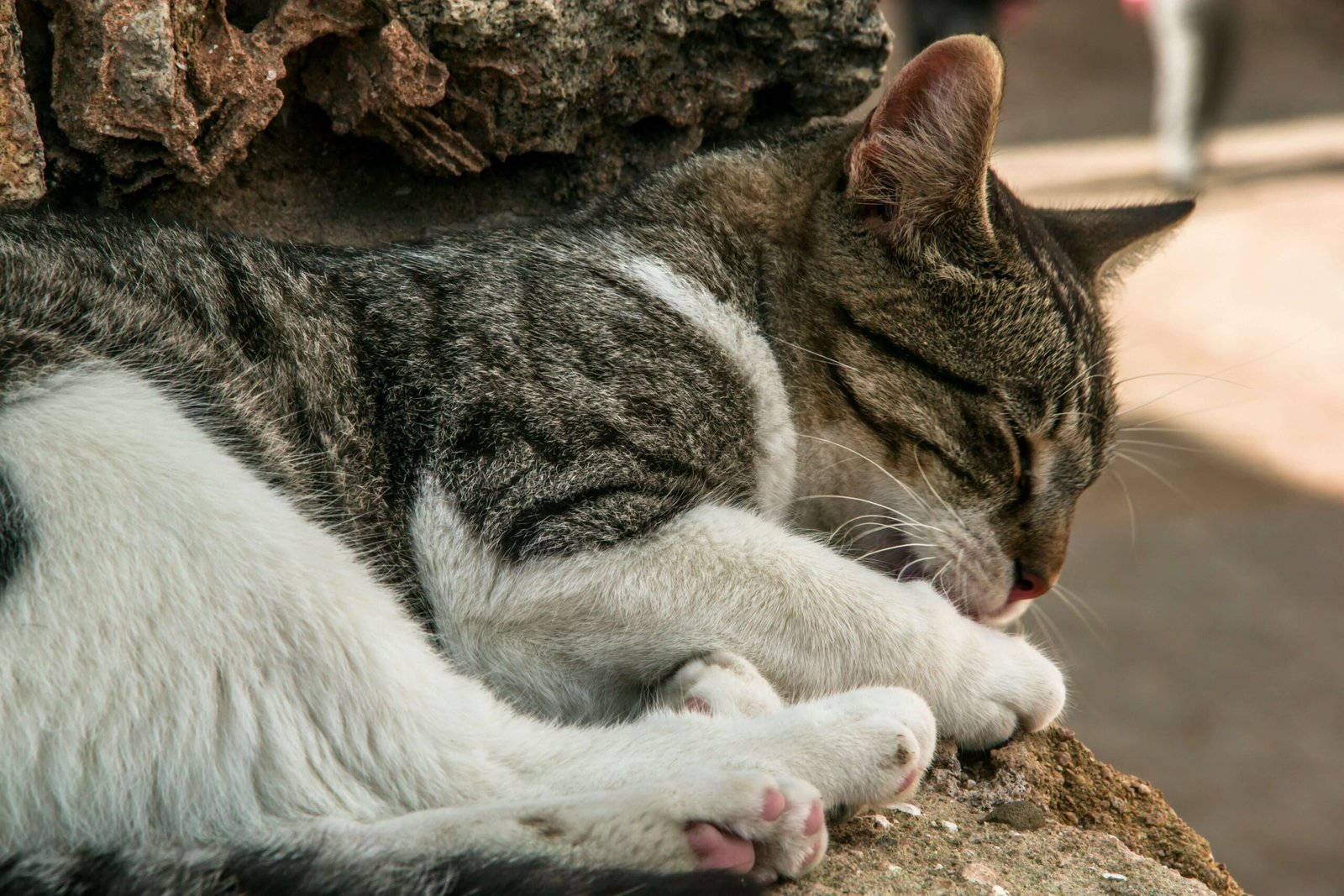Understanding Cat Eye Cancer: What Every Pet Owner Needs to Know
Cats are beloved members of our families, and their expressive eyes often reflect their playful and curious nature. However, just like humans, cats can develop serious health issues, including cancer. One of the more concerning conditions is cat eye cancer, a term that encompasses various types of tumors affecting the feline eye. While it’s a rare condition, understanding its causes, symptoms, and treatment options is crucial for early detection and effective management. In this blog post, we’ll explore everything you need to know about cat eye cancer, from recognizing warning signs to supporting your furry friend through diagnosis and beyond.
Types of Cat Eye Cancer: What You Should Know
Cat eye cancer can manifest in different forms, each with unique characteristics and implications. Familiarizing yourself with these types can help you better understand potential risks and discuss them confidently with your veterinarian.
Melanoma :
A melanoma is a type of tumor that originates from pigment-producing cells in the eye. It can occur in the iris or other parts of the eye.Lymphoma :
Lymphoma in cats often affects the lymph nodes but can also spread to the eye, causing inflammation and discomfort.Squamous Cell Carcinoma :
This type of cancer typically affects the surface tissues of the eye, such as the conjunctiva or eyelids, and is more common in white or light-colored cats.Fibrosarcoma :
Fibrosarcomas are aggressive tumors that can develop in the connective tissues around the eye, leading to swelling and deformity.Retinoblastoma (Rare) :
Although extremely uncommon, retinoblastoma is a malignant tumor that affects the retina and can impair vision if left untreated.
Understanding the specific type of eye cancer your cat may be facing is essential for determining the most appropriate course of action. Early diagnosis significantly improves treatment outcomes, so staying informed is key.
Common Symptoms of Cat Eye Cancer
Detecting cat eye cancer early can make a significant difference in your pet’s prognosis. Keep an eye out for these warning signs, which may indicate the presence of a tumor or related issue.
Changes in Eye Color :
Noticeable discoloration of the iris or unusual spots on the eye could signal the development of a tumor.Swelling or Bulging Eyes :
If one or both eyes appear swollen or protrude abnormally, it may indicate pressure caused by a mass.Persistent Discharge :
Excessive tearing, pus, or blood coming from the eye should not be ignored, as it could point to an underlying problem.Vision Impairment :
Cats with eye cancer may exhibit difficulty navigating spaces or bump into objects due to vision loss.Behavioral Changes :
Increased irritability, hiding, or reluctance to engage in activities they once enjoyed may accompany physical symptoms.
If you notice any of these symptoms, schedule an appointment with your vet promptly. Early intervention can help preserve your cat’s quality of life and improve treatment success rates.
Check this guide 👉Understanding Cat Eye Ulcers: Best 7 Health Tips!
Check this guide 👉Understanding Brown Cat Eye Discharge: Best 7 Health Tips!
Check this guide 👉Cat Eye Injury: Best 7 Health Tips!

Signs of Cat Eye Cancer | Steps to Take if Suspected |
|---|---|
Changes in eye color | Schedule a vet exam immediately |
Swelling or bulging eyes | Avoid touching the affected area |
Persistent discharge | Keep the eye clean and monitor changes |
Vision impairment | Create a safe environment for your cat |
Behavioral changes | Document symptoms to share with your vet |
Treatment Options for Cat Eye Cancer
Once diagnosed, there are several treatment options available depending on the type and severity of the cancer. Your vet will recommend the best approach based on your cat’s overall health and specific needs.
Surgical Removal :
In cases where the tumor is localized, surgery may be performed to remove the affected tissue or even the entire eye if necessary.Radiation Therapy :
Radiation can target and shrink tumors without invasive procedures, preserving the eye and surrounding structures when possible.Chemotherapy :
For cancers that have spread beyond the eye, chemotherapy may be used to slow progression and alleviate symptoms.Cryotherapy :
Freezing techniques can destroy abnormal cells in certain types of tumors, particularly those on the surface of the eye.Palliative Care :
When curative treatments aren’t feasible, palliative care focuses on managing pain and improving your cat’s comfort and quality of life.
Each treatment option has its pros and cons, so discussing all possibilities with your veterinarian will ensure you make the best decision for your cat.
Preventive Measures to Reduce Risk
While not all cases of cat eye cancer can be prevented, taking proactive steps can minimize risk factors and promote overall feline health. Here are some preventive measures worth considering.
Regular Vet Check-Ups :
Routine examinations allow your vet to catch early signs of abnormalities before they progress.Protect From Sun Exposure :
Limit direct sunlight exposure, especially for light-colored cats prone to squamous cell carcinoma.Maintain a Healthy Diet :
A balanced diet supports immune function and reduces susceptibility to diseases, including cancer.Monitor for Skin Changes :
Regularly inspect your cat’s eyes and skin for unusual growths, discolorations, or irritation.Avoid Environmental Toxins :
Keep your home free of harmful chemicals and secondhand smoke, which can increase cancer risk.
By incorporating these habits into your cat’s care routine, you’re actively contributing to their long-term well-being and reducing the likelihood of serious illnesses.
Emotional Impact of Cat Eye Cancer on Owners
A diagnosis of cat eye cancer doesn’t just affect your pet—it can also take an emotional toll on you as their caregiver. Understanding the emotional challenges and how to cope with them is crucial for maintaining your own well-being during this difficult time.
Feelings of Helplessness :
Watching your cat struggle with a serious illness can leave you feeling powerless, even when you’re doing everything possible to help.Financial Stress :
The cost of treatments like surgery or radiation therapy can add financial strain to an already stressful situation.Decision-Making Pressure :
Choosing between treatment options or considering euthanasia can weigh heavily on your mind and heart.Grief and Loss :
Anticipating the potential loss of your cat may trigger feelings of grief, even before the end-of-life stage.Support Networks :
Reaching out to friends, family, or online communities can provide emotional relief and practical advice.
Acknowledging these emotions and seeking support can help you navigate this challenging period while continuing to care for your cat with love and strength.
How to Prepare for Vet Appointments
Visiting the vet for suspected or confirmed cat eye cancer requires preparation to ensure you make the most of each appointment. Being organized will help you communicate effectively and gather all necessary information.
Write Down Observations :
Keep a detailed log of symptoms, changes in behavior, and any questions you want to ask your vet.Bring Medical Records :
Having your cat’s complete medical history on hand ensures the vet has access to critical information.Ask About Diagnostic Tests :
Inquire about imaging, biopsies, or other tests that might be needed to confirm the diagnosis.Discuss Treatment Costs :
Ask upfront about the costs associated with different treatments to plan accordingly.Clarify Next Steps :
Request a clear explanation of what happens after the appointment, including follow-up visits or medications.
By preparing thoroughly, you can ensure productive conversations with your vet and feel more confident in managing your cat’s care.
Ways to Improve Your Cat’s Quality of Life During Treatment
If your cat is undergoing treatment for eye cancer, there are several ways you can enhance their comfort and happiness during this time. Small adjustments can make a big difference in their overall well-being.
Create a Calm Environment :
Minimize stressors like loud noises or sudden changes in routine to keep your cat relaxed.Provide Soft Bedding :
Ensure your cat has access to comfortable, supportive bedding, especially if they’re experiencing pain or mobility issues.Offer Favorite Foods :
Encourage eating by offering tasty, nutritious meals that cater to their preferences and dietary restrictions.Engage in Gentle Play :
Use low-energy toys or interactive play to keep your cat entertained without overexerting them.Administer Medications Properly :
Follow your vet’s instructions carefully to ensure medications are given correctly and on time.
Focusing on these simple yet meaningful actions can help your cat feel loved and secure, even while dealing with the challenges of cancer treatment.
Frequently Asked Questions About Cat Eye Cancer
How common is eye cancer in cats?
Eye cancer is relatively rare in cats but can occur, especially in older animals or those predisposed to certain conditions.
Can eye cancer spread to other parts of the body?
Yes, some types of eye cancer, like lymphoma, can metastasize to other organs if left untreated.
Will my cat lose its eye if diagnosed with eye cancer?
Not always—treatment depends on the type and stage of the cancer. Surgery to remove the eye may be recommended in severe cases.
Is eye cancer painful for cats?
Depending on the type and location, eye cancer can cause discomfort or pain. Pain management is an important part of treatment.
Are certain breeds more prone to eye cancer?
While no breed is immune, white or light-colored cats are at higher risk for squamous cell carcinoma due to increased sun sensitivity.
Final Thoughts: Supporting Your Cat Through Eye Cancer
Dealing with a diagnosis of cat eye cancer can be overwhelming, but knowledge and preparation empower you to provide the best care for your feline companion. By staying vigilant for symptoms, seeking timely veterinary advice, and exploring treatment options, you can give your cat the best chance at recovery or improved quality of life. Remember, your love and dedication play a vital role in helping your cat navigate this challenging journey. With compassion and commitment, you can ensure your furry friend feels safe, supported, and cherished every step of the way.
How Cats Develop Lymphoma: Best 7 Expert Tips! – Learn about causes, symptoms, and prevention to protect your cat from this common cancer.
How Dogs Develop Lymphoma: Best 7 Expert Tips! – Learn causes, symptoms, and prevention strategies to protect your dog from this common cancer.
Diphenhydramine Safe for Dogs? Best 7 Expert Tips! – Learn proper dosing, uses, and precautions to keep your dog safe while using Benadryl.
Is Milk in Cat Food Safe? Best 7 Expert Tips! – Discover the truth about milk in cat food, its risks, and how to keep your feline healthy and happy.





